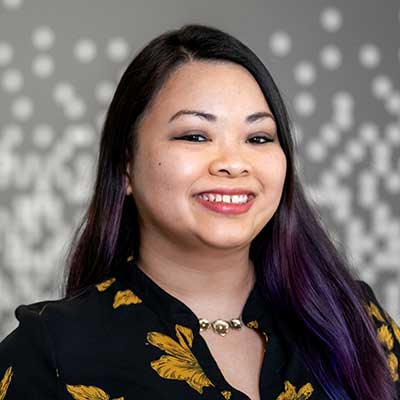At regional HCI conference, mentorship and social responsibility take the stage
Author: Milton Posner
Date: 05.21.24
As several thousand human–computer interaction (HCI) researchers gathered in Honolulu, Hawai’i this month for CHI, the field’s preeminent annual conference, some researchers were noticeably and intentionally absent.
Many abstained out of concern for Hawai’i and its residents. As noted by Georgia Tech Professor and Native Hawaiian Josiah Hester, the island struggles to support the deluge of tourists amid extensive climate degradation, especially after the 2023 wildfires razed large swaths of the state. Tourism dollars often bypass the local economy on their way to hospitality and leisure companies based elsewhere, meaning that locals bear the environmental brunt of the tourism while reaping little financial benefit.
Some researchers also objected to the conference’s impact on the global climate. While researchers flying to conferences is far from new, CHI’s size and location mean that thousands of researchers would need to book lengthy flights or attend virtually.
These issues have spurred some HCI researchers to organize smaller regional conferences, including the Northeast HCI Meeting at Carnegie Mellon University from May 8 to 10. Khoury–CAMD Professor Alexandra To — alongside CAMD Professor Laura Forlano — helped organize the event, and she says it’s sorely needed for the research community.

“The sustainability concerns were just a good reason to go for it,” she says. “CHI is an enormous global community, [but] connecting with folks nearby is also really important and useful … This meet-up is meant to replace some of what would be lost in withholding from CHI, especially for junior scholars who are newer to the field.”
It’s for those PhD students that To, alongside colleagues Meg Young and David Gray Widder, co-organized the meeting’s doctoral consortium, with Khoury College sponsorship covering the event’s food. There, 14 students both in Pittsburgh and online received mentorship and feedback on their dissertations, presented their research in lightning talks, and expanded their networks. The program also featured paper sessions, one-on-one mentoring, discussions about the academic job market and dissertation writing, and a panel event on scholar activism to discuss the social and environmental issues that compelled the event’s creation in the first place.
“We’re not publishing anything that comes out of this,” To says. “It’s more of a community mentoring and peer mentoring event, trying to create more local community around HCI.”
That HCI community is certainly no stranger to this sort of ethical and social stand. To notes that because of the field’s interdisciplinary origins, and because they study the challenges and opportunities that arise from the general public’s use of technology, the field is a natural fit for tackling social justice issues. This is especially true of the work To and her students do in HCI and game design, which often revolves around themes and issues of race, queer identity, neurodivergence, and disability.
In particular, it was To’s work on scholar activism and critical theory that motivated her to become involved with the regional meeting.
“I want to balance my personal labor between critiquing things and making sure there are alternatives,” she explains. “It’s not enough to simply critique a big system; I want to make sure there are spaces for people to engage elsewhere.”
For this space to continue and grow, To believes it’s a matter of creating a more formal infrastructure, much like the Digital Games Research Association has with its local affiliate conferences. Once regional conferences attain this official status, research faculty can more easily justify to their supervisors and departments why they’re spending time on them.
And it’s certainly something To would like to continue spending her time on.
“I would love to dispel the feeling of younger researchers that if you don’t publish at CHI or some major venue with a gold-star impact metric, that you won’t have a career,” she says. “There are lots of other ways to share your research, whether it’s writing for the public or finding smaller venues with a more concentrated focus and network. Those are fantastic ways to forward your research and your career. I just don’t want people to feel like they have to make trade-offs between their personal values and their professional success.”